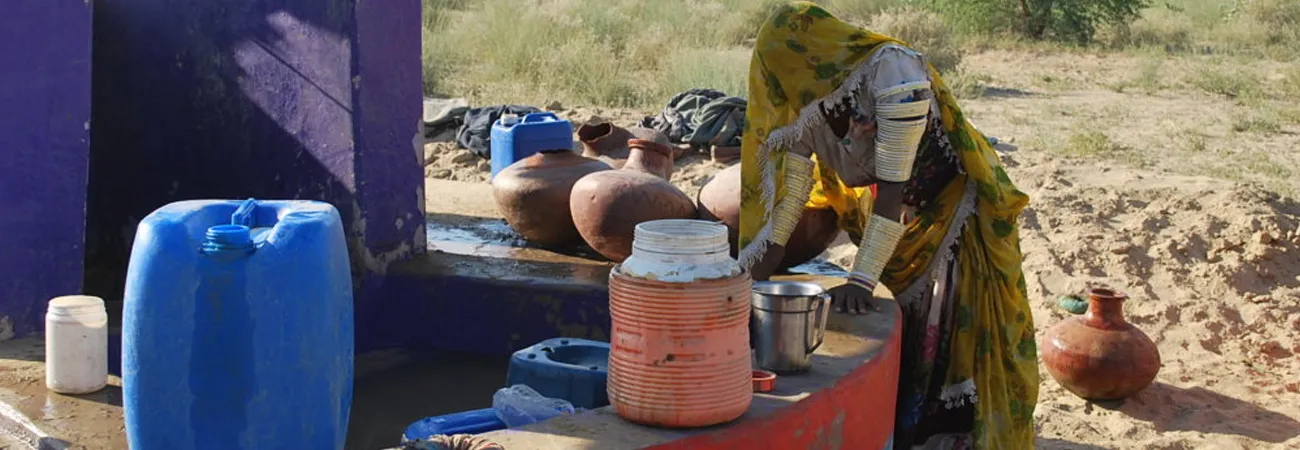i ECONOMY
The Sindh government plans to undertake a mega water supply project in Tharparkar district under the Public-Private Partnership (PPP) mode to meet the water needs of the local people. The project aims to make maximum use of the water extracted along with the coal in the Thar coalfields. In this regard, the provincial government recently signed a contract with a Kuwaiti company – Intertech Water Private Limited – for the biggest-ever Nabisar-Vajihar Water Supply Project worth Rs51.6 billion. Under the project, a canal will be built from Farsh regulator to Nabisar. The canal will have a capacity to discharge 200 cusecs of water.
According to the project document, the Kuwaiti company is responsible for laying a 60.7-kilometre pipeline having a capacity of carrying 45 cusecs of water from Nabisar to Vajihar along with the construction of two reservoirs at Nabisar and Vajihar, respectively. Under the contract, the private partner has to establish a 4.8MW power generation system for 48 cusecs pumping stations. There would be two pumping stations with a maximum capacity of 60 cusecs. A water treatment system of 51 cusecs would also be established comprising flocculation/clarification and filtration to attain the required water quality. The project is expected to generate revenue of Rs35 billion annually.
Yasir Mumtaz, Director at Public-Private Partnership Wing, the government of Sindh, said that the project was being undertaken under the public-private partnership model. He added that this was the first time a water supply project in Pakistan was being funded under a project finance structure, as such projects had been financed historically by public sector institutions. Power production from Thar coal is the third cheapest source among as many as 124 plants operating on various fuels, including gas, RLNG and oil in the country. The power production on Thar coal costs only Rs4.39 per unit (kilowatt per hour) at present. This includes fuel (coal) cost at Rs3.74 per unit, according to National Transmission and Despatch Company.
Pakistan successfully launched its third power plant with the capacity of generating 330MW on the indigenous Thar coal last year, after which the total installed power production capacity from local coal has increased to 990MW. Pakistan has 175 billion tonnes of coal reserves in Tharparkar alone, equivalent to 50 billion tonnes of oil equivalent, more than Saudi Arabian and Iranian oil reserves. The reserves equal 2,000 trillion cubic feet of gas, which is 68 times higher than Pakistan’s total gas reserves. Thar coal can meet Pakistan’s electricity demand for several centuries and, as all the coal reserves will not be utilised for power production, there could be many other uses for the excess coal.
Credit: Independent News Pakistan (INP)









